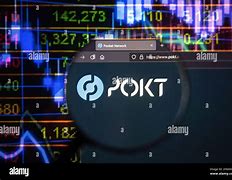Introduction to Pocket Network
As the Web3 ecosystem expands, the need for reliable, decentralized infrastructure becomes paramount. Pocket Network addresses this by offering a decentralized platform that connects developers to blockchain data through a network of full nodes. This approach eliminates reliance on centralized providers, ensuring enhanced security, scalability, and cost-efficiency for decentralized applications (dApps).
How Pocket Network Operates
Pocket Network functions as a decentralized Remote Procedure Call (RPC) protocol, enabling developers to access blockchain data seamlessly. By leveraging a network of over 5,000 nodes, Pocket Network supports more than 50 blockchains, including Ethereum, Polygon, and Binance Smart Chain. This extensive support ensures that dApps can interact with multiple blockchains through a single, unified interface.
The network employs a Proof-of-Stake (PoS) consensus mechanism, where node operators stake POKT tokens to participate. These operators are incentivized to maintain high uptime and performance, as they earn rewards for successfully relaying data. This model promotes a robust and reliable infrastructure for developers.
The Role of POKT Token
The POKT token is integral to Pocket Network’s ecosystem. It serves multiple purposes:
- Staking: Node operators stake POKT tokens to earn the right1 to process data relays. This staking mechanism ensures that only committed participants contribute to the network’s operations.
- Payments: Developers pay for RPC services using POKT tokens. The cost is minimal, with fees as low as $0.00000085 per relay, making it an economical choice for dApp developers.
- Governance: POKT holders can participate in network governance through the Pocket DAO, influencing protocol upgrades and other critical decisions.
Advantages of Using Pocket Network
- Decentralization: By eliminating centralized intermediaries, Pocket Network enhances security and reduces single points of failure.
- Scalability: The network’s architecture allows it to handle vast amounts of data requests, accommodating the growing demands of the Web3 ecosystem.
- Cost-Efficiency: Developers benefit from low-cost access to blockchain data, making it feasible to build and maintain dApps without incurring prohibitive expenses.
- Multi-Chain Support: With support for over 50 blockchains, developers can build versatile applications that interact with multiple networks seamlessly.
Upcoming Developments: The Shannon Upgrade
Pocket Network is set to enhance its capabilities with the upcoming Shannon upgrade. This upgrade aims to further decentralize the network by enabling permissionless gateways, increasing scalability, and supporting new use cases beyond blockchain RPCs. The Shannon upgrade will allow anyone to create decentralized gateways, accelerating adoption and making Pocket Network a fully open and universal RPC infrastructure layer.
Real-World Applications
Pocket Network’s infrastructure is already being utilized in various real-world scenarios:
- Web3 dApps: Developers building decentralized applications leverage Pocket Network for reliable and decentralized access to blockchain data.
- AI Inference Services: Research indicates that Pocket Network’s infrastructure can support decentralized AI inference services, providing a new avenue for model researchers to disseminate their work without the complexities of maintaining infrastructure.
- Blockchain Ecosystems: Platforms like Polygon have integrated Pocket Network to bring decentralized infrastructure to their ecosystems, enhancing reliability and performance.
Conclusion
Pocket Network stands as a pivotal component in the evolution of decentralized infrastructure for Web3 applications. By providing a scalable, cost-effective, and decentralized solution for accessing blockchain data, it empowers developers to build robust dApps without reliance on centralized services. With ongoing developments like the Shannon upgrade, Pocket Network is poised to further solidify its role in shaping the future of decentralized internet infrastructure.
Also Read: Banana Coin Price Prediction 2025: Market Analysis
